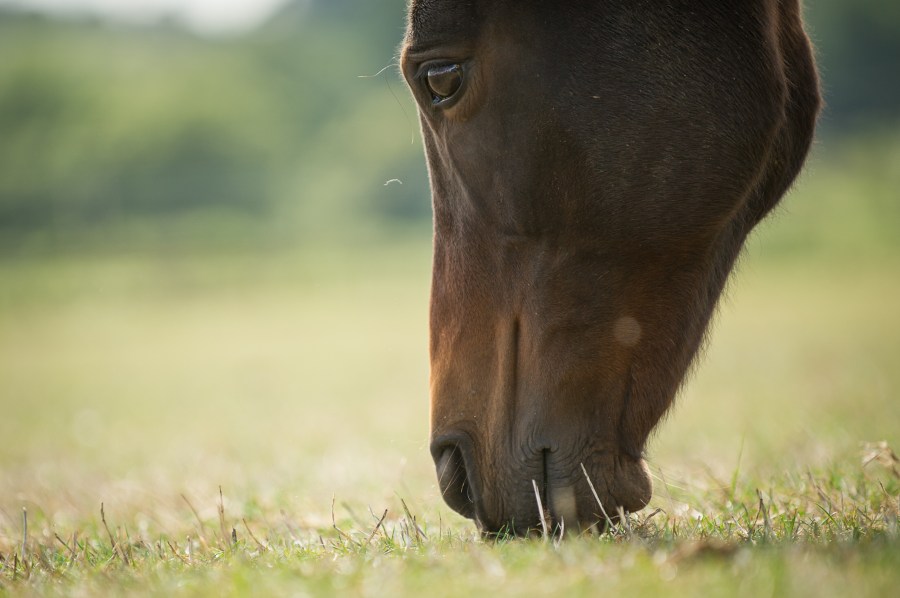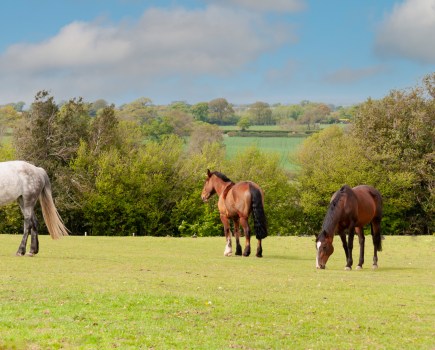A survey about views on equine obesity has shown that those who work in the industry believe that lack of knowledge is a primary cause of overweight horses and ponies. The survey, conducted by the makers of Spillers last month, was completed by 638 industry professionals including riding instructors/coaches (32%), yard managers/grooms (24%), physiotherapists/osteopaths/chiropractors (15%) and vets/vet nurses (13%).
The aim pf the research was to increase understanding of the many issues surrounding equine obesity, in order to provide recommendations for effective intervention strategies.
It revealed the prevalence of obesity, with 83% of respondents encountering obesity either ‘very frequently’ or ‘somewhat frequently’. 30% of show judges reported encountering obesity ‘very frequently’ (the lowest group %) compared to 79% of vets (the highest group %).
73% of respondents engaged in discussions with owners about weight management frequently. 87% of vets and 85% of physiotherapists/osteopaths/chiropractors actively participated in these conversations.
While only 70% of show judges/stewards regularly discussed obesity with owners, they were the most confident sector, with 30% stating they were ‘very confident’ to have such conversations. Comparatively, only 14% of vets were ‘very confident’ and 40% weren’t confident at all. As an average, riding instructors and coaches were most confident about discussing obesity with horse owners.
The primary causes of obesity identified included lack of knowledge and insufficient exercise. 83% of respondents believed there was insufficient awareness of equine obesity among UK horse owners.
There was agreement that diet and nutrition played a role in preventing and managing obesity in horses. Exercise was seen as ‘extremely important’ or ‘somewhat important’ with 96% of respondents.
The majority (81%) of respondents believed that obesity significantly decreased wellbeing of horses. Zero respondents believed it had no significant impact. 100% of vets agreed that obesity either ‘significantly’ or ‘moderately’ impacted wellbeing, whilst 4% of show judges felt that obesity only slightly decreased wellbeing.
Education was a common answer for helping reduce obesity, including more open and honest conversations with owners and more restrictions at competitions for overweight horses. There was also a call for more research and wider use of strip grazing and track systems.
There was a ‘resounding’ request for more education and advice, as well as praise for the Spillers’ Slimmers Club. The club supports more than 11,000 horse owners with practical support and camaraderie for owners of overweight horses and ponies, to aid them on their weight loss journey.
More than a third of respondents (37%) were optimistic about the potential to reduce the prevalence of obesity in horses in the UK, with continued education. The most optimistic were vets/vet nurses and physiotherapists/osteopaths/chiropractors. The most pessimistic groups were riding instructors/coaches and yard managers.
“The survey has given us valuable knowledge from industry professionals on how they and their clients perceive the problem of obesity,” said Bella Fricker, Project Lead at Mars Horsecare, home of the Spillers brand. “With better clarity about how positive changes can be made we hope to move forward with some new educational projects to give further support to horse owners and industry professionals from recognition, management and prevention perspectives. We want to banish equine obesity for good and we hope that by working together we can make change happen.”
Lead image by Spillers
![]() Have you heard about Your Horse’s #FitNotFat campaign? Equine obesity is an enormous welfare problem and we’re on a mission to provide owners and riders with the knowledge, skills and information you need to keep your horse in tip-top health. It could be life saving! Find out more
Have you heard about Your Horse’s #FitNotFat campaign? Equine obesity is an enormous welfare problem and we’re on a mission to provide owners and riders with the knowledge, skills and information you need to keep your horse in tip-top health. It could be life saving! Find out more










